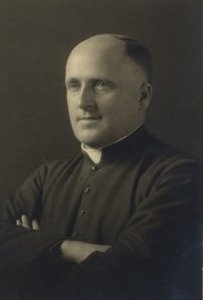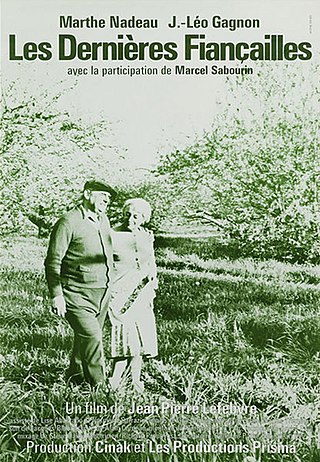Related Research Articles
Claude Jutra was a Canadian actor, film director, and screenwriter.
The Montreal International Film Festival was an annual Canadian film festival, which took place in Montreal, Quebec from 1960 to 1967.
Jean Pierre Lefebvre is a Canadian filmmaker. He is widely admired as "the godfather of independent Canadian cinema," particularly among young, independent filmmakers.

The Prix Albert-Tessier is an award by the Government of Quebec that is part of the Prix du Québec, given to individuals for an outstanding career in Quebec cinema. It is awarded to script-writing, acting, composing music, directing, producing and cinematographic techniques. It is named in honour of Albert Tessier.
Jean-Claude Labrecque, was a director and cinematographer who learned the basics of filmmaking at the National Film Board of Canada.

Michel Brault, OQ was a Canadian cinematographer, cameraman, film director, screenwriter, and film producer. He was a leading figure of Direct Cinema, characteristic of the French branch of the National Film Board of Canada in the 1960s. Brault was a pioneer of the hand-held camera aesthetic.
Gilles Carle, was a French Canadian director, screenwriter and painter.
Le jour S... is a 1984 Canadian drama film directed by Jean Pierre Lefebvre. It was screened in the Un Certain Regard section at the 1984 Cannes Film Festival. Jean-Baptiste, a restless Québécois in his late 30s, spends the day alone in Montreal while his current partner is pursuing a career in Toronto. Every woman he encounters reminds him of her. He relives his past through actual encounters as well as his imaginative memory.

The 2nd Toronto International Film Festival (TIFF) took place in Toronto, Ontario, Canada between September 9 and September 18, 1977. Retrospective of Quebec cinema was introduced and also Greek cinema was emphasized. J.A. Martin Photographer directed by Jean Beaudin was selected as the opening film.
The Old Country Where Rimbaud Died is a 1977 French-Canadian feature from Jean Pierre Lefebvre. The second film in his Abel Gagné trilogy, preceded by Don't Let It Kill You in 1967 and followed by Now or Never in 1998, the film follows Abel on a journey to France to visit the land of his ancestors.
To the Rhythm of My Heart is a Canadian documentary film, directed by Jean Pierre Lefebvre and released in 1983. Made during his national tour of Canada for a 1981 retrospective of his films compiled by the Canadian Film Institute, the film is a video diary documenting both his philosophical and creative discussions on the co-operative movement in cinema as part of the tour and the concurrent illness and death of his wife, film editor and producer Marguerite Duparc.
Those Damned Savages is a Canadian drama film, directed by Jean Pierre Lefebvre and released in 1971. A satirical critique of colonialism, the film explores its thesis that racist attitudes toward First Nations have not changed through a narrative that places various real historical figures from the 17th century in modern-day Montreal.
Marguerite Duparc was a Canadian film producer and editor, best known for her collaborations with her husband Jean Pierre Lefebvre.

The Last Betrothal is a Canadian drama film, directed by Jean Pierre Lefebvre and released in 1973. The film stars J. Léo Gagnon and Marthe Nadeau as Armand and Rose Tremblay, an elderly couple who have been married for fifty years and are living their final days together as Armand is terminally ill; however, Rose has secretly vowed to die at the same time as Armand, so that she will never have to live without him.
My Friend Pierrette is a Canadian comedy-drama film, directed by Jean Pierre Lefebvre and released in 1969. The film stars Yves Marchand and Francine Mathieu as Yves and Pierrette, a young couple who are spending their first vacation together at a family cottage when they meet Raoul, an artist who comes between them.
The House of Light is a Canadian drama film, directed by Jean Pierre Lefebvre and released in 1969. The film stars Marcel Sabourin and Michèle Magny as a husband and wife who are interacting entirely in their bedroom, engaging in conversations about their relationship while the scenery outside their bedroom window provides the only major visual change in setting.
Pigs Are Seldom Clean is a Canadian drama film, directed by Jean Pierre Lefebvre and released in 1973. The film stars Jean-René Ouellet as Bob Tremblay, an undercover Royal Canadian Mounted Police officer in Hull, Quebec, whose fiancée Hélène is kidnapped and raped by the criminal gang he is infiltrating after his identity is discovered.
The Revolutionary is a Canadian satirical film, directed by Jean Pierre Lefebvre and released in 1965. The film stars Louis St-Pierre as a radical university student in Quebec who wants to launch a revolution to overthrow the Canadian government, only to have his efforts to recruit and train fellow revolutionaries in a rural compound derailed when he meets and falls for a young woman staying in another cabin nearby.

Pierre Hébert is a Canadian animator from Montreal, Quebec, most noted for his 1996 feature film The Human Plant .
References
- ↑ Gerald Pratley, A Century of Canadian Cinema. Lynx Images, 2003. ISBN 1-894073-21-5. p. 168.
- ↑ Charles-Henri Ramond, "Patricia et Jean-Baptiste – Film de Jean Pierre Lefebvre". Films du Québec, April 10, 2009.
- 1 2 3 Jay Scott, "Conquering Cannes: Canada's best filmmaker has good reason to smile". The Globe and Mail , 18 May 1984.
- ↑ Stan Shatenstein, "Film retrospective focuses on image Montrealers have of themselves and their city". Montreal Gazette , January 16, 1990.